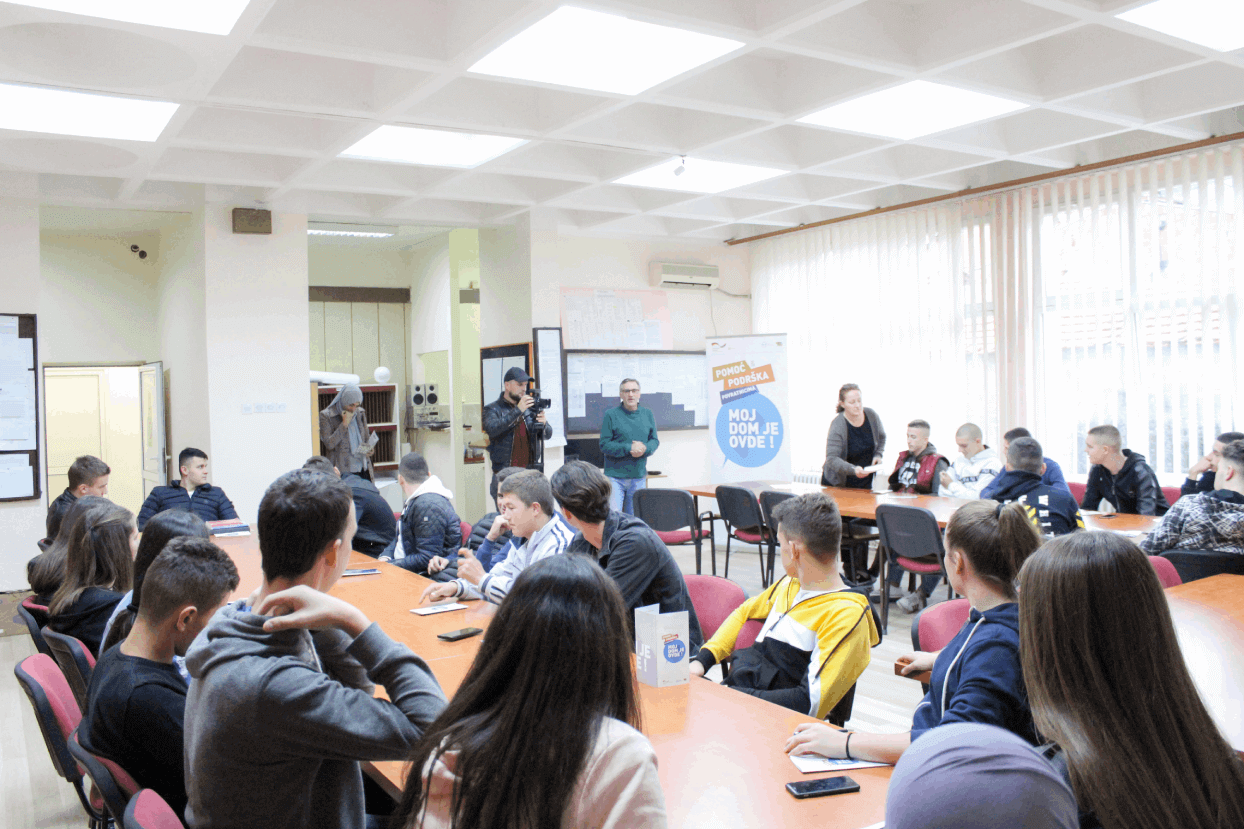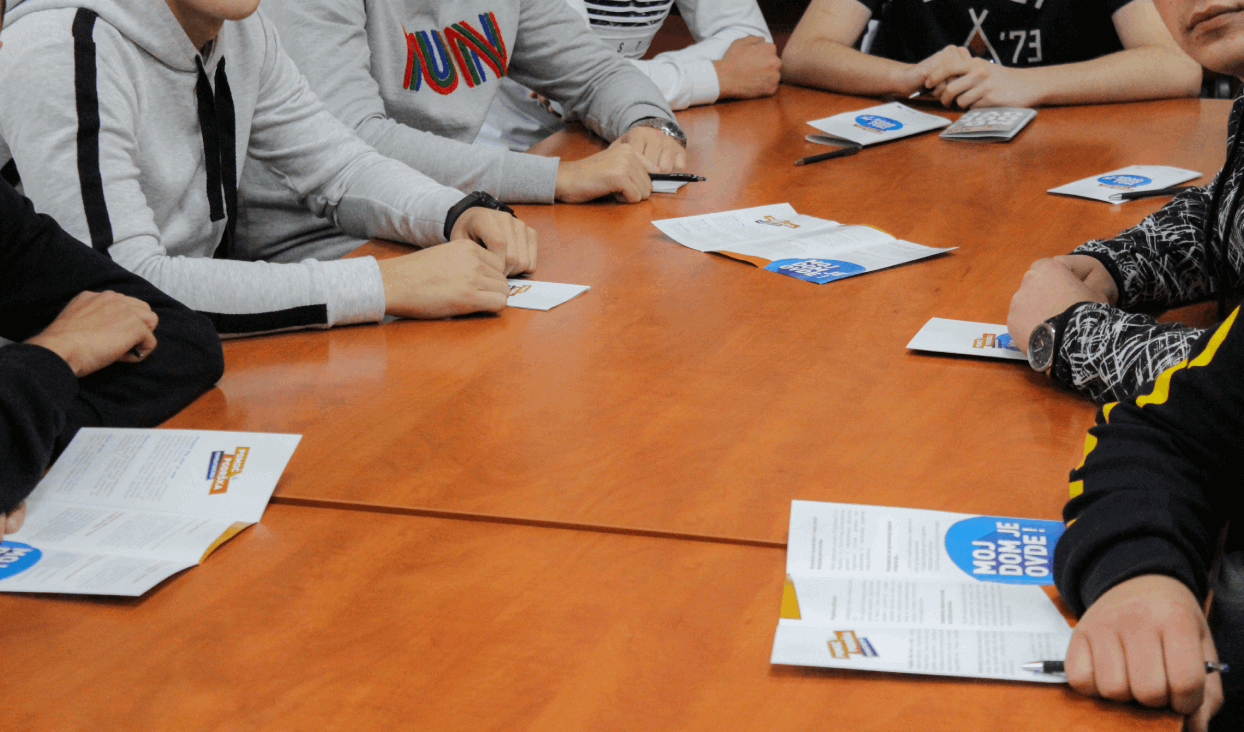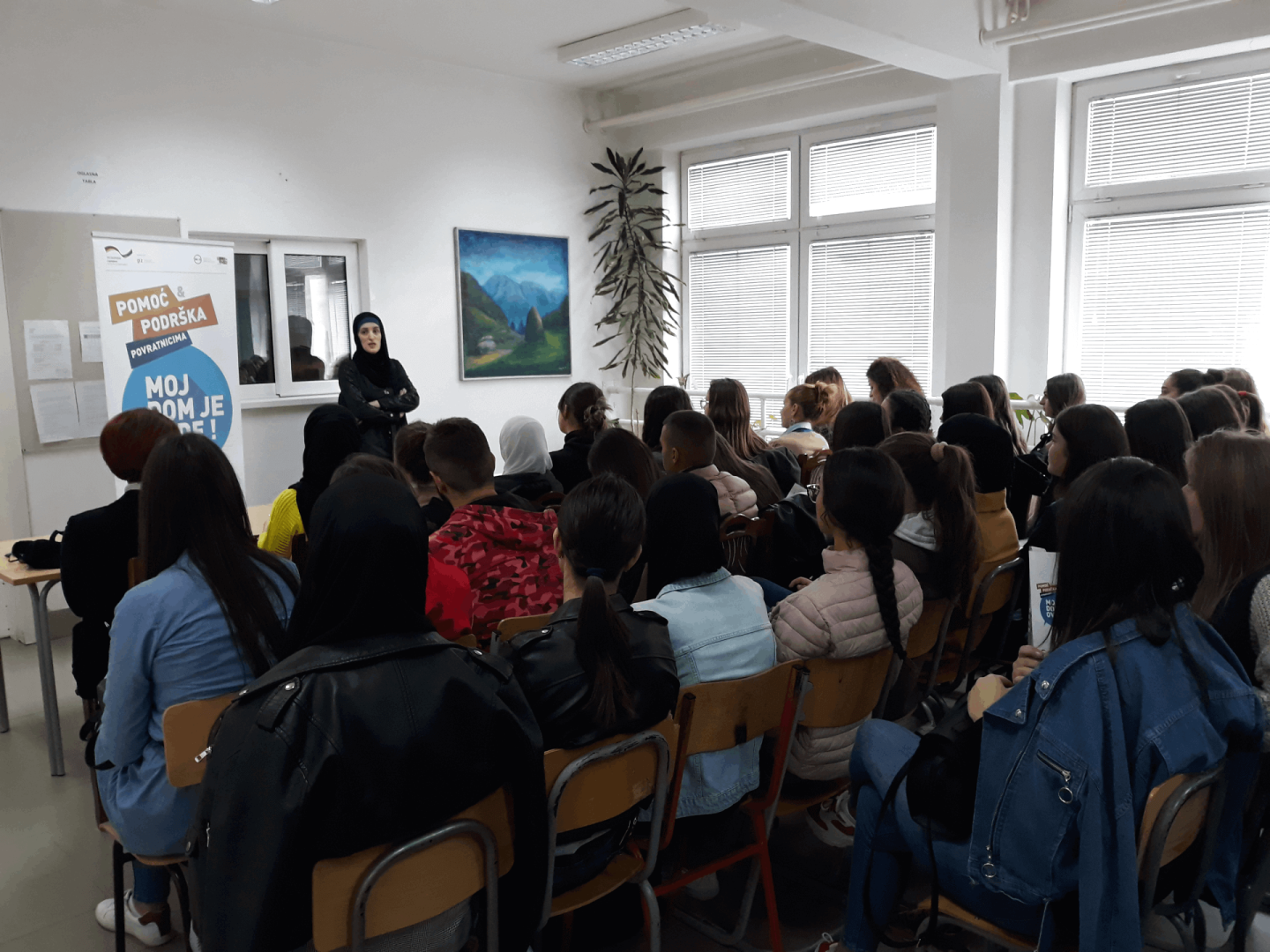Bearing in mind that Serbia is facing economic migration of its population, especially youth, Global Programme “Migration for Development” (PME), as part of the broader initiative “Returning to New Opportunities” of the German Federal Ministry for Economic Cooperation and Development (BMZ), is committed to addressing this issue by providing support in improving living conditions, economic empowerment and enhancing prospects for staying in the country.
One type of support entails cooperation with civil society organisations. PME supports these organisations through their capacity building and development of services in the area of social and economic (re)integration provided to returnees and local population.
In cooperation with the civil society organisations, Sandžak was recognised as the part of Serbia where youth empowerment measures needed to be implemented, especially taking into account that in this environment cca. 70 per cent of the youth stated they would like to emigrate to European Union countries after having completed their education. Therefore, the PME Programme supported the project “My home is here – prevention of illegal migration” implemented by the National Decentralisation Coalition (NKD) from Niš and a nongovernmental organisation “Urban-In” from Novi Pazar. Project activities were focused on improving living conditions of the citizens of Novi Pazar and Tutin, particularly youth, to enhance employability and downsize migration towards the EU countries.
Aiming to address specific needs of the returnee families, the “Urban-In” NGO carried out a research on the living conditions and needs of the returnee families, which enabled acquiring additional data on those families, countries they have been returned from and underlying reasons, same as on the problems they have been facing upon return. Activities and communication with representatives of local institutions have contributed to understanding the importance of the issue of returnees and their reintegration in the local environment.
Youth are a vulnerable category, especially in the labour market, and their considerations about leaving the country represent a burning issue in Serbia. To educate and inform young people on the issues, problems and consequences of illegal migration, interactive workshops for third and fourth grade secondary school students were organised in Tutin and Novi Pazar. These workshops enabled the youth in these towns to get familiarised with the problems and challenges of staying in Germany “in asylum”, same as with the consequences of illegal migration through experiences and life stories of the returnees. Many of the young people have reconsidered or changed their views about leaving the country. Primarily, the number of students who are still convinced they would leave the country in any way has been reduced, and those who stated they would still like to leave have said they would carefully think this idea through, seek additional information and legal ways to leave for the EU countries. This is substantiated by impressions of a secondary school student: “Prior to this workshop, leaving for Germany was “a done deal” for me. I was thinking, same as majority of my peers, that leaving for Germany in any way was the only thing that mattered, even if it included “asylum”, and that afterwards everything would be easy. However, listening to the story of a returnee, I realised I knew nothing. She disillusioned my fantasy that in Germany everything will be handed to us “on a silver platter”, that “money is falling from the sky” and the only thing left for us to do is pick it up. Now I know I need to think harder, ask questions, talk to people and only then decide on whether and how to leave. But, this will not be at any cost for sure.”
The returnees represent a particularly sensitive category of population facing the challenges of reintegration into regular courses of life, establishing social contacts, finding a job and achieving economic independence. Amongst them there are members of vulnerable population categories in greatest need of assistance, like single mothers, women who are victims of domestic violence and social welfare beneficiaries. To provide assistance and support to returnees in ensuring economic security of their families, a call for the award of grants for business start-ups or strengthening of the existing small business was implemented. Ten returnee families were thereby supported, seven from Novi Pazar and three from Tutin. One-off grants included purchase and awarding machinery, devices, tools, equipment and material for starting, developing or enhancing private business. The purpose of this assistance was to ensure adequate economic conditions to stimulate the returnees to set up their business life in their homeland.
In Novi Pazar majority of grants were awarded to returnees practicing crafts, like installation of drywalls, hair-dressers and locksmiths. Two grants were awarded to returnees dealing with delivery of services like carpet wash, services to commercial and craftsmanship activities, while textile and transportation business were supported by one grant each.

In Tutin support was granted to rural households with registered agricultural holdings for development of agricultural production. In this way, the PME Programme contributed to stimulating not only rural development, but improving quality of life in rural environments.
Via information and training organised by the PME Programme in partnership with civil society organisations, we tend to reach those who are unaware of the ways on how to apply and get assistance, and those to whom services of relevant institutions (like the National Employment Service) are often not accessible. Through its activities, the PME Programme will continue to provide them with the support and assistance in improving living conditions and ensuring economic security of their families.



